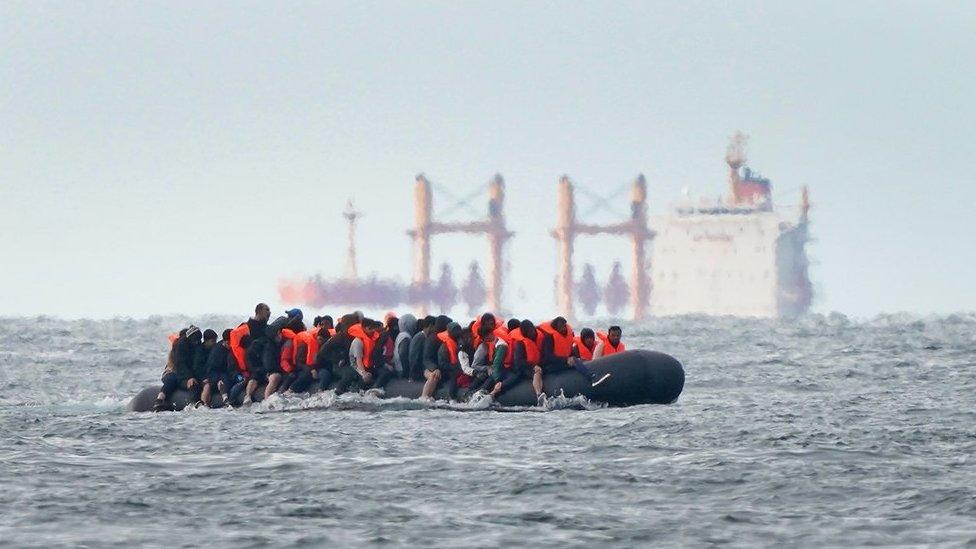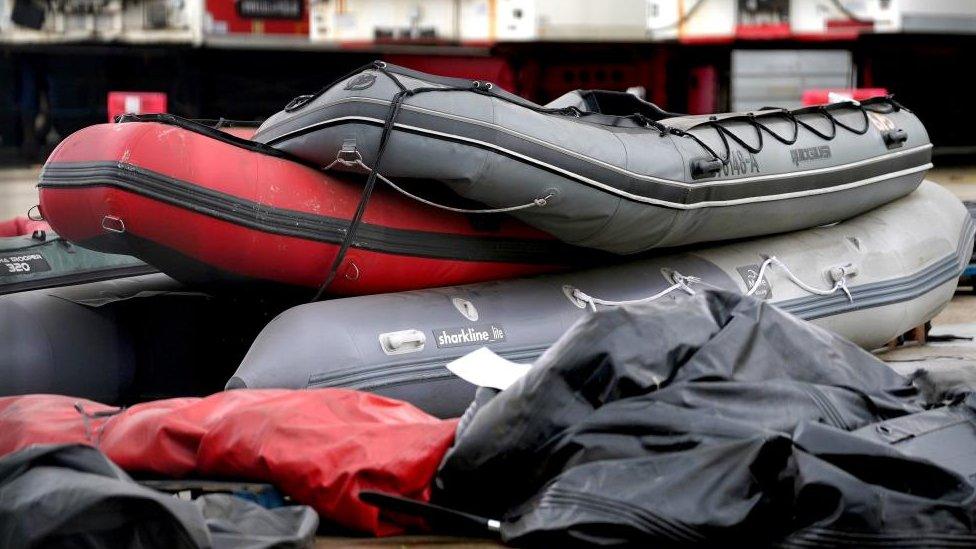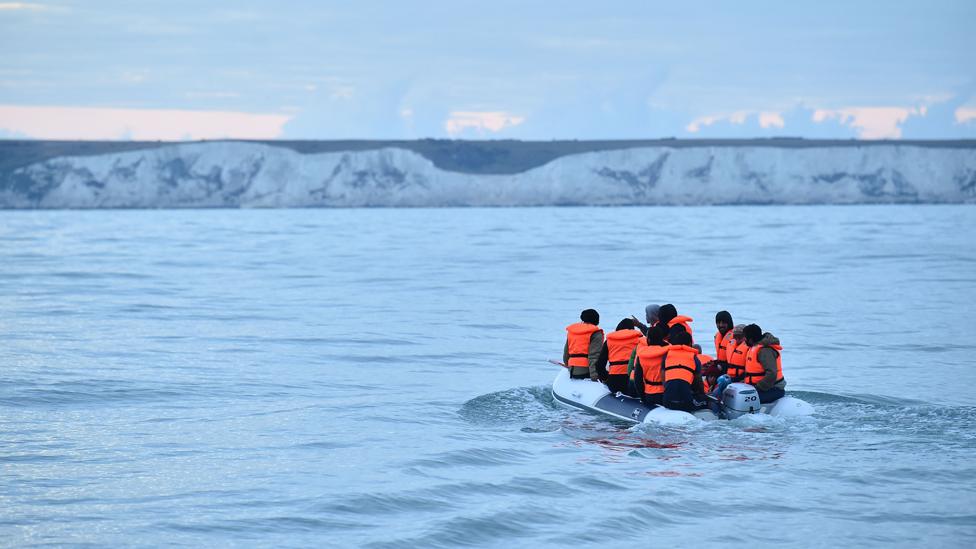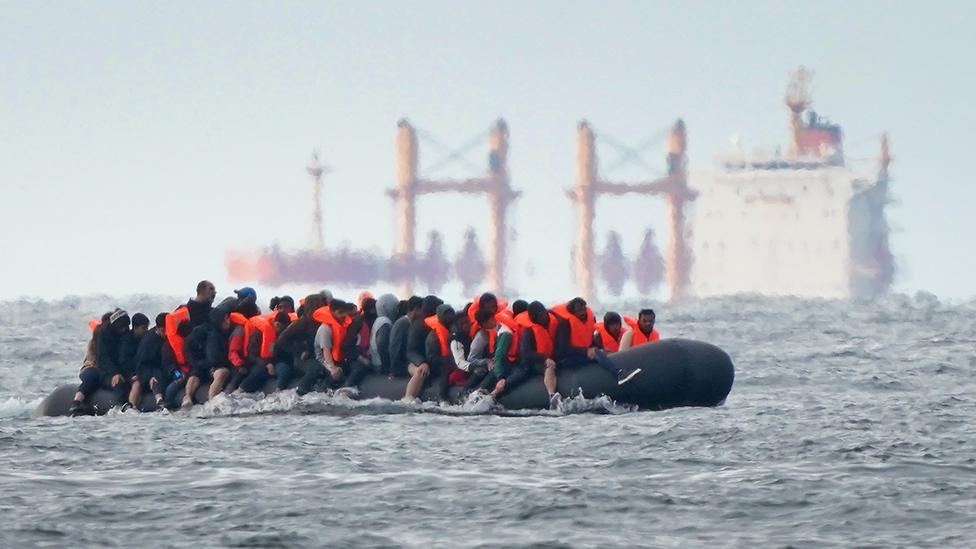Restrict boat motor sales to hit smugglers, says NCA
- Published

The head of the National Crime Agency (NCA) has called for import restrictions on the motors used on small boats to reduce people smuggling.
Graeme Biggar said cheap outboard motors commonly used on the makeshift vessels are made in China and bought by criminal gangs in Europe.
Import measures in the UK and on the continent could "reduce the flow of people" migrating illegally, he said.
More than 20,000 people have crossed the Channel in small boats this year.
Giving a speech on the NCA's work at the Royal United Services Institute, Mr Biggar said the agency was focused on "disrupting" organised crime.
"If we can disrupt the supply of engines and boats coming to the UK, we can reduce the flow of people coming and increase the cost of a trip," Mr Biggar told reporters at the event.
He suggested it may be more effective than trying to track down those behind the smuggling.
People smugglers usually inflate their boats and fit them with motors at the last minute, sometimes in sand dunes along the French coast, before migrants climb aboard to cross the Channel.
The NCA, which has outposts across Europe, has been working with law enforcement agencies from other countries to seize the components before they can be used.
Last year the agency said it had joined forces with German police to raid a farm near Osnabruck as part of an operation which intercepted 135 boats, 45 outboard motors and more than 1,200 life jackets. Police made 40 arrests in raids across Europe.
Mr Biggar - who has led the NCA since October 2021 - said three types of "flimsy" outboard motors made in China were often used by the gangs, which usually cannot be recovered once they have been used.
He said the NCA was "working on the right way" of persuading the authorities in China to help, possibly by joining forces with European countries to ban imports of the types of motors used in the trade.
He warned the NCA was facing ever-increasing challenges posed by crime networks operating internationally and making use of new technologies.
"We have investigations where the suspect is in one country, using servers or sourcing drugs in another, to target victims in a third, laundering the money in a fourth and accruing assets in a fifth," he continued.
"Technology enables much of this to happen or switch in an instant."

Rudimentary vessels are used to carry thousands over the perilous Channel crossing
People smugglers exploit encrypted messaging technology to recruit people wanting to travel to the UK and make arrangements.
The NCA head warned that in the internet age, crime has evolved so that much of it is being conducted at arms' length from other countries.
He also urged the government to change the law to stop a small but growing number of criminals making their own guns using 3D printers.
This is being encouraged by the difficulty criminals currently face in obtaining guns via other means, including converting them from blank firing weapons.
A recent Home Office consultation included measures to criminalise the creation and possession of blueprints for firearms components.
3D printed guns were once "as likely to hurt the person firing them" as the intended target, Mr Biggar said, but with some devices now capable of printing in metal, he warned they are becoming more sophisticated.
Related topics
- Published25 October 2023

- Published25 October 2023
